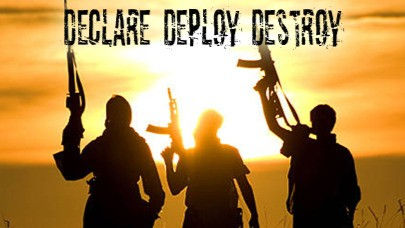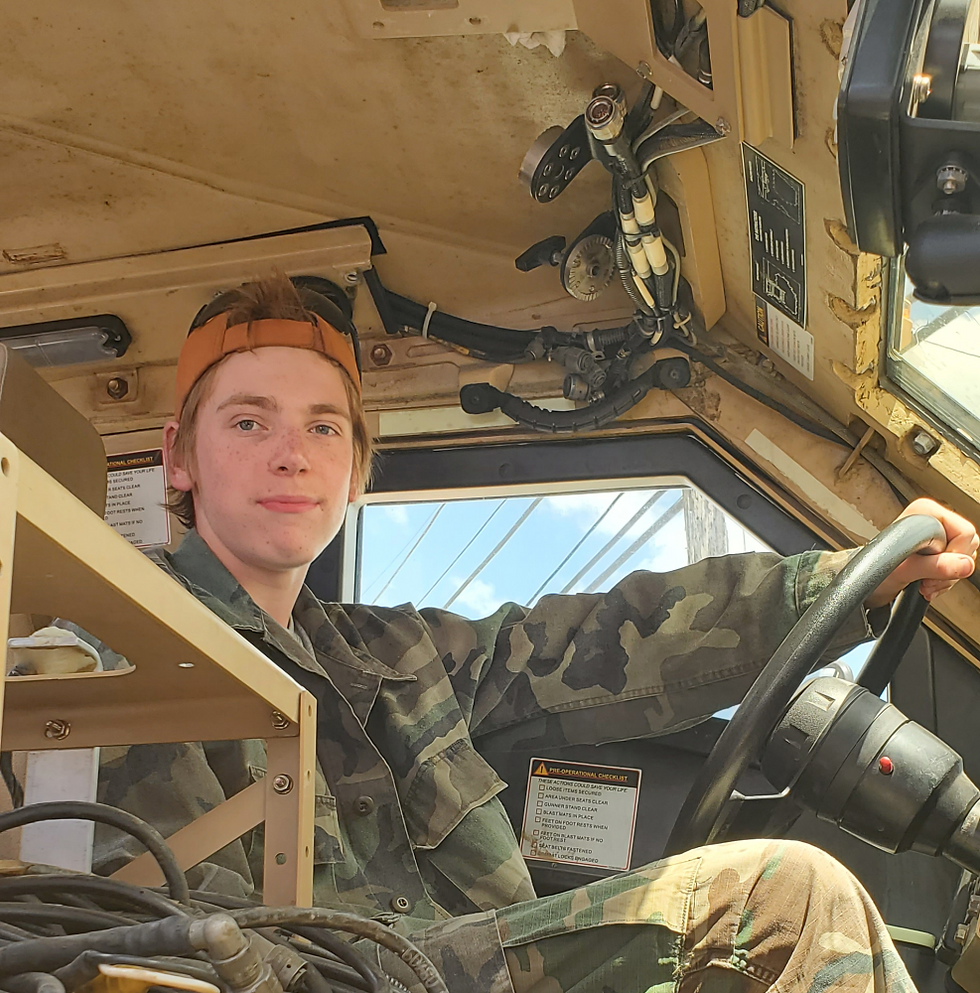Why Declaring Cartels as Terrorists was Long Overdue and Why the Military Should Hunt Them Down
- EG Weiss

- Aug 16, 2025
- 4 min read

The new announcement by President Donald Trump to authorize military force against Latin American drug cartels designated as foreign terrorist organizations (FTOs) has stirred passionate debate; especially among my colleagues in law enforcement, intelligence, and homeland security circles. Many of these critics are people I respect deeply, yet I find myself at odds with the positions they’ve taken.
I want to cut through the noise and address this head-on, because I have been sounding this alarm for years, literally. In my 2025 book Drawing the Line, released on the night of President Trump’s inauguration, I wrote about the inevitability of and need this very step. I argued that treating these cartels as mere criminal enterprises was a dangerous misclassification that would, in time, demand a recalibration of both policy and force. The writing was on the wall for two decades, and it’s been carved in stone for the last several administrations.
According to multiple reports, President Trump has authorized U.S. military force against foreign cartels that are now formally designated as terrorist organizations. The New York Times and other outlets report that this authorization involves coordination among the Department of Defense, Department of Justice, Department of Homeland Security, the Office of the Director of National Intelligence, and the Treasury Department.
The target list includes organizations such as the Sinaloa Cartel, the Jalisco New Generation Cartel (CJNG), and Venezuela’s Cartel de Los Soles — all of which are deeply entrenched in narcotrafficking, arms smuggling, human trafficking, and targeted assassinations across the Western Hemisphere. High-ranking members of these cartels have already been sanctioned, and in the case of Venezuelan President Nicolás Maduro, indicted on charges of narcoterrorism.
Attorney General Pam Bondi recently announced that the U.S. is now offering $50 million for Maduro’s capture; the second-highest bounty placed on an individual since Osama bin Laden if I am correctly remembering. For perspective: this isn’t “political theater.” This is the scale of the threat.
Bondi also directly linked Maduro to Tren de Aragua (TdA), the Venezuelan transnational gang I documented extensively in my 2023 book on the subject. As founder of TdA Shadows; a foundation created to research, track, and educate agencies on this group, I can tell you from both data and firsthand work in the field that TdA did not just “move into” American cities. They embedded themselves, recruiting, and reshaping criminal ecosystems from Miami to Denver to small-town Texas with all the help that the Office of Refugee Resettlement could offer.
One of the most common criticisms I’ve seen in response to Trump’s announcement is that he’s “manipulating” the situation to make the military do a job that “belongs to law enforcement.”
That statement might have been valid fifteen years ago. But for at least that long, these cartels have been operating by definition as terrorist organizations:
They use violence not just as a tool, but as a political and territorial weapon.
They destabilize governments through corruption, coercion, and assassination.
They terrorize civilian populations to control regions.
They operate across multiple national borders with military-grade weapons.
If those elements sound familiar, it’s because they are the same criteria used to classify groups like al-Qaeda, ISIS, ISIS-K, Hamas, and Hezbollah. The difference is that we’ve had the political courage to call those groups what they are but not the cartels just south of our own border.
The military is not being called upon to “do police work.” The military is being tasked with targeting and dismantling foreign terrorist organizations. That is precisely within their mission set.
The refusal of past administrations (Republican and Democrat alike), to name the threat for what it is has had predictable results:
Law enforcement agencies in the U.S. have been forced to focus on symptoms and side effects of cartel activity (street violence, overdoses, trafficking cases) rather than the source.
The scale and resources of the cartels have far outpaced the capacity of local, state, and even federal law enforcement.
Border communities, and now cities thousands of miles inland, have suffered a steady increase in violent crime and fentanyl deaths directly tied to these groups.
We’ve seen this same playbook with international terrorism: refuse to act at the source, and the problem metastasizes until it’s on your doorstep. The cartels are no longer just “Mexico’s problem” or “Colombia’s problem.” They are a hemispheric insurgency with direct operational footprints in our cities.
By declaring these cartels as FTOs, the U.S. changes not just the legal framework but the perception of the threat. A smart and strategic move made by someone that a lot of people are still clkaiming is “stupid” and “un-informed”. It opens up tools of warfare, intelligence, and interagency cooperation that are not available when we treat this as a “drug enforcement” problem. It allows for:
Military targeting and interdiction of cartel assets abroad.
Expanded intelligence operations under counterterrorism authorities.
The ability to pursue and prosecute support networks under anti-terror statutes.
It is not a silver bullet. But it is a recognition, finally, that we cannot police our way out of a war.
I welcome this new era of recognition and follow-through, but I say with urgency: the clock is running out. Cartels like Sinaloa and CJNG have already adapted to law enforcement pressure by diversifying operations, embedding sleeper networks, and leveraging technology from encrypted comms to drones. TdA is expanding with alarming speed, using migrant flows as both cover and recruitment pools.
The bounties, sanctions, and military authorization are not acts of escalation, they are overdue acts of defense.
For years, I have warned in books, in briefings, in classrooms that this day was coming. In Drawing the Line, I called for the U.S. to abandon the outdated framing of “drug cartels” as simply criminal gangs. In my work with TdA Shadows, I’ve documented how inaction allows these networks to entrench themselves beyond the reach of conventional policing.
To my colleagues who are criticizing this shift: I urge you to separate political preference from operational necessity. The military isn’t being “weaponized for politics.” It is being deployed against terrorists who have murdered Americans, destabilized governments, and poisoned communities for decades.
We either act now, with the tools this designation provides, or we keep writing after-action reports about why we didn’t.



Comments